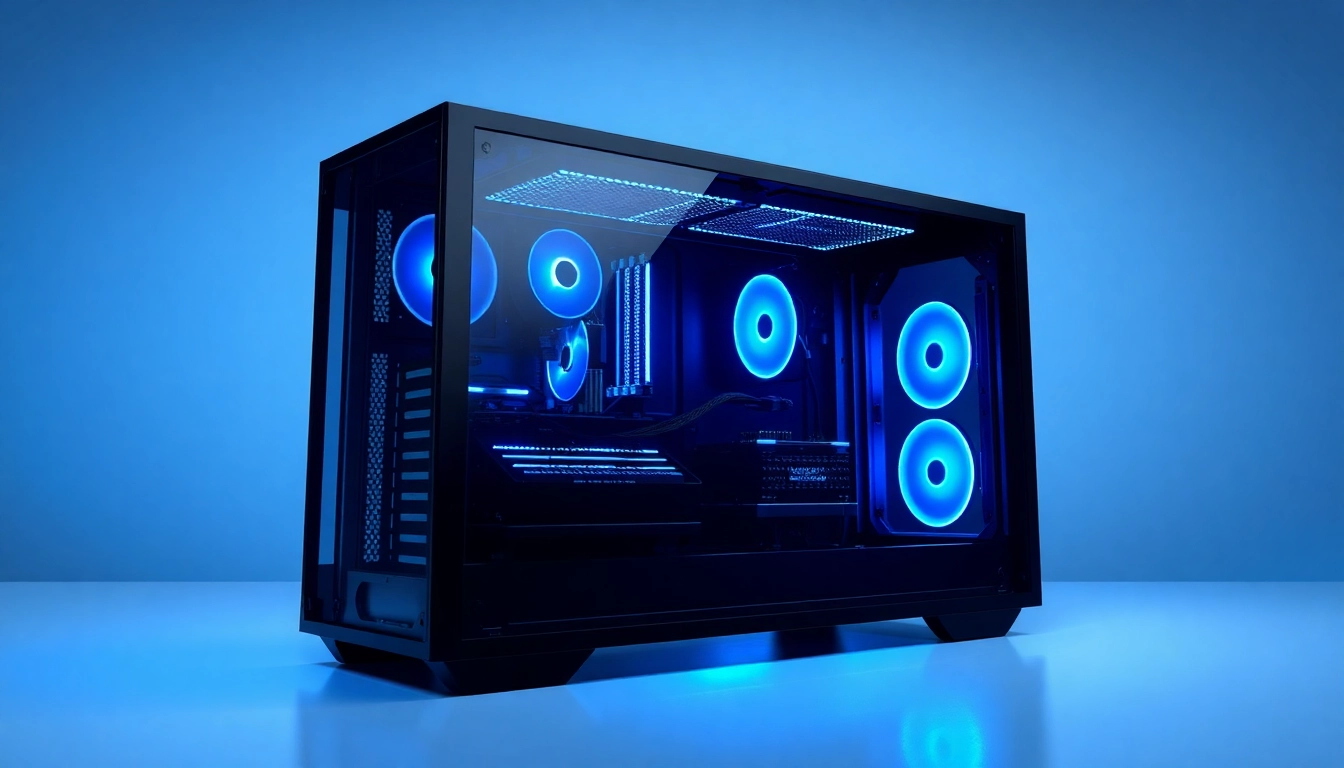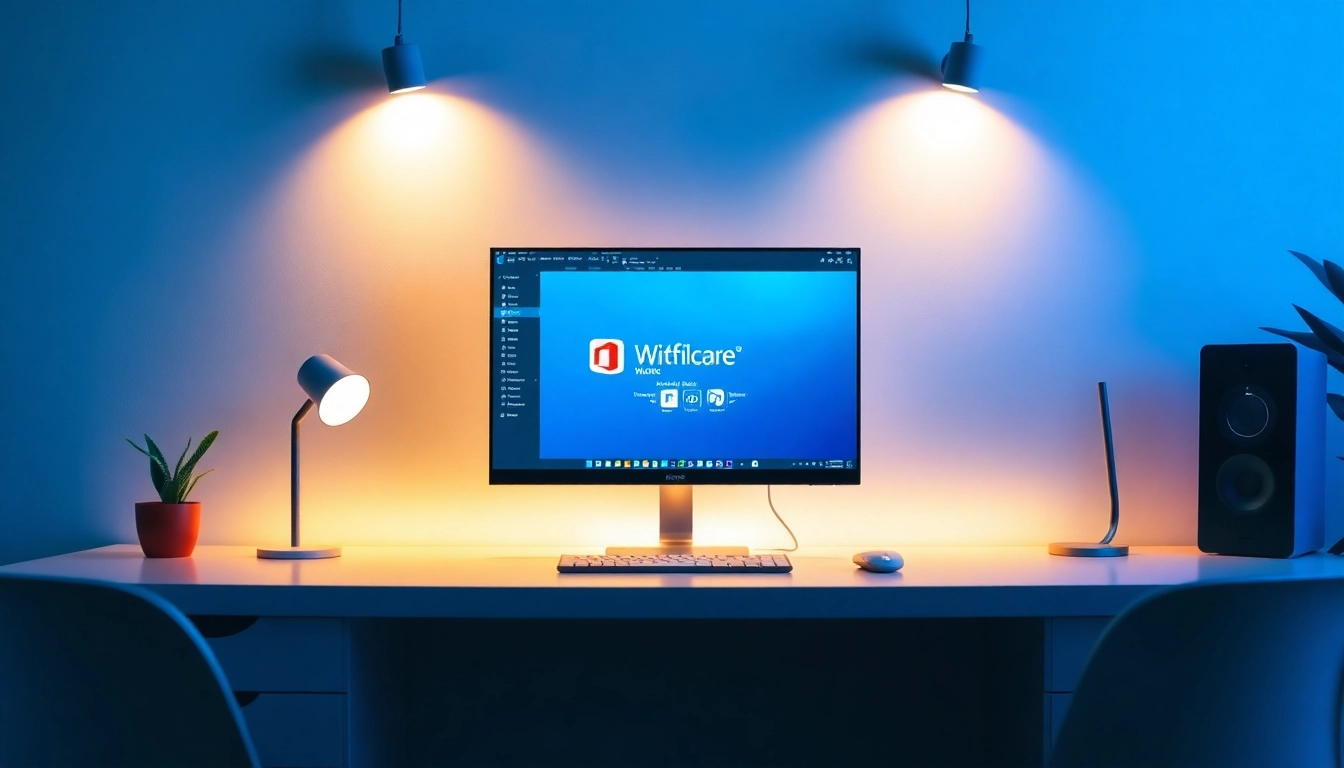Understanding PC Cases: A Beginner’s Guide
A PC case is not just an external shell for your computer; it serves as the foundation for your entire build. Whether you are a novice looking to assemble your first gaming rig or a seasoned enthusiast upgrading your setup, choosing the right case is crucial. The quality of your PC CASE Supplier matters significantly, as it influences not just aesthetics but also performance, airflow, and compatibility. This guide will provide an in-depth look at various aspects of PC cases, helping you make informed decisions.
The Importance of a Quality PC CASE Supplier
The PC case acts as a protective shell for your components while providing essential features like airflow management, cable management, and aesthetic customization. Selecting a reputable PC CASE supplier is paramount, as it can impact not just the physical aspects of your case but also its thermal performance and build quality. These qualities can make a substantial difference in your PC’s longevity and performance. A reliable supplier will typically offer quality warranties, customer support, and a diverse range of products to fit various needs and budgets.
Different Types of PC Cases Explained
Understanding the different types of PC cases is vital for selecting the right one for your needs. Broadly speaking, PC cases can be categorized into several types:
- Full Tower Cases: Ideal for high-end builds and those requiring multiple expansions, full tower cases provide ample space and superior cooling options.
- Mid Tower Cases: These are among the most popular due to their balance of size and expandability. They can fit most components comfortably and are well-suited for gaming setups.
- Mini Tower Cases: Tailored for compact builds, these cases are ideal for users with limited desk space or those who prefer a minimalist approach.
- Micro ATX/ITX Cases: Perfect for ultra-compact builds, these cases support small motherboards and are often equipped with smart cable management solutions.
- Custom Cases: Designed for enthusiasts, custom cases can be tailored to meet specific aesthetic or functional requirements, allowing for advanced cooling solutions and unique visuals.
How to Choose the Right PC Case for Your Needs
Choosing the right PC case is about more than just looks; it also involves ensuring compatibility with your hardware and mirroring your personal style. Below are key factors to consider when selecting the right case:
Assessing Your Hardware Compatibility
Before purchasing a PC case, it is essential to evaluate the hardware you plan to install. This assessment includes considering the motherboard size (ATX, micro-ATX, or mini-ITX), the GPU dimensions, and whether you will employ liquid cooling solutions. Each component has space requirements that must be met to ensure a smooth build. It’s advisable to consult compatibility charts provided by manufacturers and potentially seek additional community feedback for particular configurations.
Balancing Design and Functionality
Aesthetic appeal must be balanced with practicality. Cases come in various designs, including RGB lighting, tempered glass panels, and sleek metallic finishes. While aesthetics matter, the functionality of the case can influence performance. A good case should allow for adequate airflow, easy access to components, and efficient cable management. When selecting a case design, consider your comfort with building and maintaining the system and whether you would frequently upgrade components.
Cost Considerations When Selecting a PC CASE Supplier
Budget plays a significant role in your choice of a PC case. Prices can vary widely between suppliers based on brand, materials used, and features offered. While it can be tempting to choose the cheapest option, investing a little more in a quality case may offer better cooling, sturdier construction, and additional features like sound dampening. It’s crucial to determine what features are worth spending more on and which you can do without in your specific build.
Custom Builds: Designing Your Dream Gaming Setup
For gaming enthusiasts and tech aficionados, the process of building a custom PC can be thrilling. A good PC CASE supplier will be central to this, providing the materials, support, and resources needed to create a custom build that meets your performance needs and personal style.
The Role of a PC CASE Supplier in Custom Builds
A proficient PC CASE Supplier not only offers a wide rane of cases but also technical support in the form of installation guides and community forums. They often provide custom designs, modding resources, and community involvement to help enthusiasts create their dream setups. The collaboration between builders and suppliers facilitates innovation in PC case designs and builds.
Popular Styles and Trends in PC Case Design
As technology evolves, so do the styles and designs of PC cases. The following trends have gained popularity:
- RGB Lighting: This continues to be a strong trend for gamers, allowing for customizable lighting effects that can sync with the PC’s performance.
- Tempered Glass Panels: These provide an aesthetic solution to showcase internal components while still ensuring structural integrity.
- Minimalistic Designs: Clean lines and simple aesthetics appeal to users looking for understated elegance.
- Sustainable Materials: In response to environmental concerns, some companies are focusing on using recycled and environmentally friendly materials.
Step-by-Step Guide to Building Your Custom PC Case
Building a custom PC case can be a rewarding experience. Here’s a step-by-step guide to help you:
- Plan Your Build: Inventory all components and decide on a budget.
- Select Your Case: Choose a case that fits components and reflects your style.
- Gather Tools: Ensure you have screwdrivers, cable ties, and thermal paste on hand.
- Install Motherboard and GPU: Begin by installing the motherboard into the case and following with your GPU.
- Add Cooling Solution: Choose either air or liquid cooling depending on your needs.
- Route Cables: Use cable management solutions to keep things tidy and organized.
- Final Assembly and Testing: Close the case, connect to power, and test your setup.
Maintenance Tips for Your PC Case
Once you have your ideal setup, maintaining your PC case is critical for keeping optimal performance. Regular upkeep can extend the lifespan of your components and improve overall efficiency.
Cleaning and Upkeeping Your PC Case
Dust accumulation can severely impact cooling performance and components. Regular cleaning involves:
- Frequency: Aim to clean your case every 3-6 months.
- Cleaning Tips: Use compressed air to remove dust; clean out filters and check for heavy buildup.
- Surface Cleaning: Wipe the surfaces with a damp microfiber cloth to remove fingerprints and smudges.
Enhancing Airflow and Cooling Solutions
To optimize component performance, ensuring proper airflow is essential. Here’s how to enhance airflow:
- Fans: Add high-quality intake and exhaust fans to promote a healthy airflow.
- Placement: Be mindful of cable management to prevent airflow blockage.
- Temperature Monitoring: Utilize software to monitor temperatures of critical components.
When to Upgrade Your PC Case
There are several indicators that it’s time to consider upgrading your PC case:
- Component Upgrades: If upgrading your components doesn’t fit in your current case.
- Lack of Cooling: If temperatures are consistently high and airflow is inadequate.
- Aesthetic Changes: If you want a new look but your existing case doesn’t allow for modifications.
The Future of PC Cases: Innovations on the Horizon
The PC case market continues to evolve, driven by innovation and user demand. Here are some anticipated trends that are shaping the future of PC cases:
Upcoming Trends in PC CASE Design
As technology progresses, new trends are emerging in the design and function of PC cases. Expect to see:
- Smart Cases: Integration of sensors and data monitoring systems for optimal performance tracking.
- Modular Designs: Cases that allow for easy customization and component swapping without needing to disassemble complete systems.
- Increased Cooling Efficiency: Utilizing advanced materials and designs to enhance cooling without increasing noise levels.
How Sustainability is Shaping the PC CASE Supplier Market
As environmental awareness grows, more manufacturers are focusing on sustainable production practices. Potential developments include:
- Eco-friendly Materials: The shift towards biodegradable or recyclable materials in constructing PC cases.
- Sustainable Packaging: Initiatives focused on reducing waste through recycled and minimalistic packaging.
- Energy-efficient Designs: Cases designed to support energy-efficient cooling systems for reduced power consumption.
The Impact of Customization Options for Gamers and Builders
The increasing demand for customization among gamers and PC builders leads to a surge in tailored options. This trend allows for:
- Individualized Aesthetics: Unique designs that reflect personal style.
- Component Flexibility: Cases designed for easy upgrades, accommodating various components as performance needs change.
- Expanded Market Choices: A broader selection of cases from different manufacturers to meet diverse consumer preferences.



